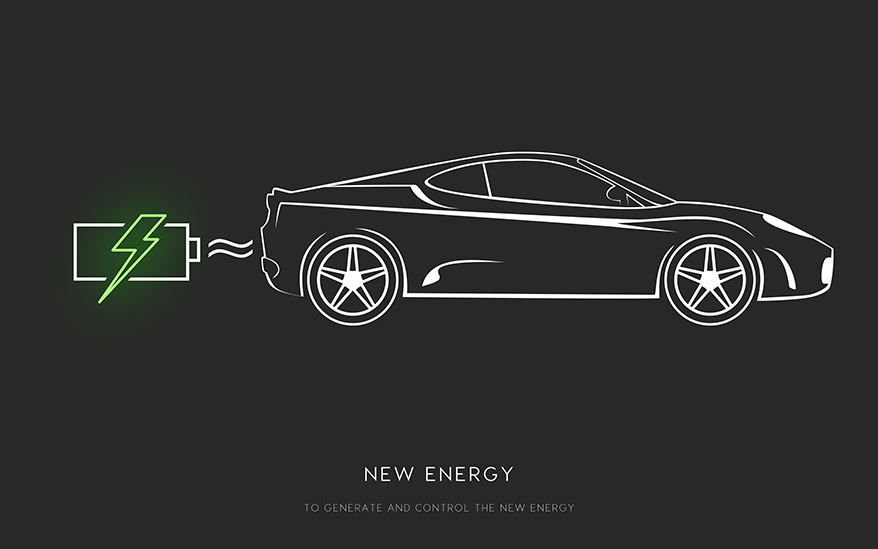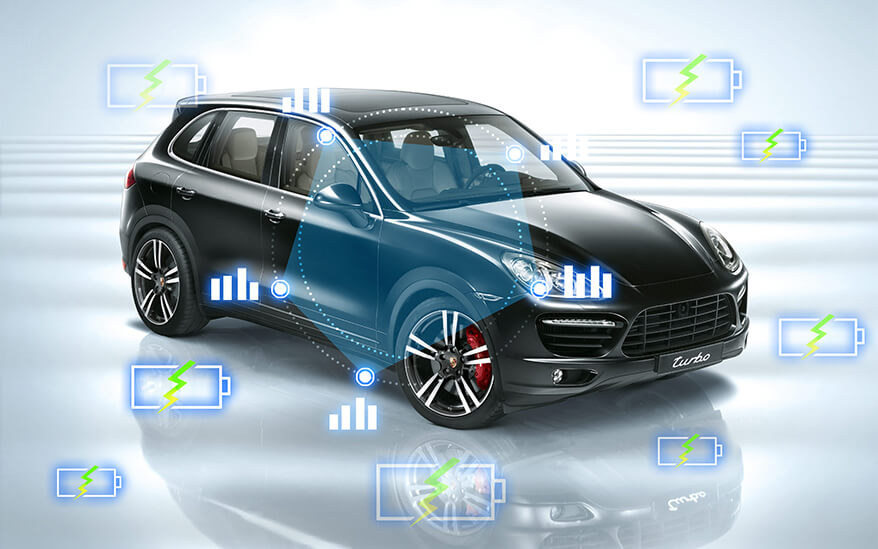Lithium-ion Battery Pack for Electric Cars
Nov 25, 2019 Pageview:1531
What factors does a lithium-ion battery need for an electric vehicle?
Specific energy capacity
The particular energy indicates the amount of power a battery is capable of holding, which also reflects the driving range for the car. One has to realize that when it comes to output per weight, a battery pack only provides only about 1% of the energy generated by fossil fuels. This makes them more reliable when it comes to energy supply from a steady power supply.
Go for a battery that showcases an affordable price range for your car while at the same time providing the best of features.
Life Span
One can measure the life span of their lithium-ion battery pack in two ways: cycle stability and using the overall age. Cycle stability can be defined as the number of times that a battery can be ultimately charged and discharged before being degraded to about 80% of its original capacity and therefore termed as dysfunctional. The overall age, however, is the number of years in which a battery is expected to stay in use. Most electric vehicle battery packs are expected to last for around 8 – 10 years in service or run a maximum of 160000 km. If the battery falls under this category, then it's good to go.
Manufacturers have, however, strived to increase the sizes of their batteries in electric vehicles due to capacity loss during aging and especially in hot climatic conditions.
Safety precautions
Safety is another essential factor to consider when picking a lithium-ion battery pack for your electric vehicle. The batteries should be fitted with safety precautions or circuits with robust enclosures that eliminate the chances of a thermal runaway. This significantly affects the battery's performance when driving the car in adverse conditions. The battery should be able to withstand the intense heat in the summer as well as freezing temperatures during winter without cases of failure.
Performance
When deciding on a lithium-ion battery for electric vehicles, manufacturers need to expect that the car owner should be able to drive it in both hot summer conditions and freezing winter temperatures. While it is possible to optimize batteries for either high or low temperatures, manipulating them to function correctly over a wide range of temperatures is typically impossible without involving the degradation of its performance. Performance of the lithium-ion technology should, therefore, be considered when finding the right application for it in electric cars.
Charging periods
Extended periods of charging the batteries present themselves as another technical challenge for vehicles that wholly rely on the battery for functionality. However, fast charging methods have been developed and utilize more sophisticated charging terminals for its effect. The intended battery technology should also be capable of handling fast charges.
Cost
How would the application of lithium-ion battery technology affect the overall cost of electric cars? The cost of batteries in the manufacture of electric vehicles plays a significant role in determining the worth of cars. There are other costs as well, such as maintenance cost and repair, which would be added in the warranty and need to be factored in. Remember that the price of a battery alone amounts to the value of the electric vehicle.
How long can lithium-ion battery pack last for electric car range in miles?
A large number of electric vehicle batteries are warrantied for at least eight to ten years of use. Lithium-ion batteries in electric vehicles are of no exception either and are expected to fall in the required life span range while sustaining the car for a maximum of 160000 km.
How do you buy good lithium-ion battery packs for electric cars?
Buying battery packs for a vehicle is a crucial decision that requires careful planning and identification to ensure that one gets the best battery that will sustain their intended mileage. When purchasing a battery pack for an electric vehicle, one has to consider several factors that will satisfy their car’s functional needs for a power source. You cannot walk into any battery store and walk out with the car’s ideal battery, not unless the vehicle’s manufacturer instructed you on the specifics that work with their invention. The following are some factors that you may want to consider when thinking about replacing your lithium-ion battery meant for your electric car:
Brand
When picking a good battery for your electric vehicle, you need the type of brands that best support the requirements required by the vehicle. Many brands have gained an exemplary reputation for electric car batteries, and such manufacturers should be top of your list. However pricey they may seem, these adored manufacturers have accurately put in place the necessary features and mechanisms during the battery manufacturers that are suitable for your type of car. Do not settle for unknown brands just because they claim to provide the same or even better batteries at lower prices.
Energy capacity
Your battery should, therefore, be able to hold a substantial amount of energy that is capable of getting you through a considerable amount of mileage. The energy to regulate the battery temperature should also be strong enough to heat and cool the vehicle without being affected by adverse weather conditions.
Cost of the battery
There are many different brands of lithium-ion based battery packs for electric cars, and each of them showcases a different price. When it comes to battery cost for electric vehicles, one should consider what their budget line covers. However, you cannot be too stingy with finances when it comes to a suitable battery pack and especially for electric vehicles in particular. Cheap brands of batteries may not be ideal for your car as much as they might be compatible. This is because the battery may not provide the required rates of energy supply that your vehicle may need to function correctly and thus may be overworked.
Final thoughts
Electric vehicles aren’t a new concept to society, especially with companies like Tesla manufacturing such cars ever since 2012. Their production seems to be the future’s hope of survival for the environment as well. With the vast applications of lithium-ion battery technology in electric motors and cars, it serves to boost the advancement and evolution of these battery-driven cars for a better and more efficient transport means.
- Prev Article: How To Recharge Lithium Coin Batteries
- Next Article: Charge Controller For Lithium Battery Introduction
Leave Message
Hottest Categories
-
Hottest Industry News
-
Latest Industry News











